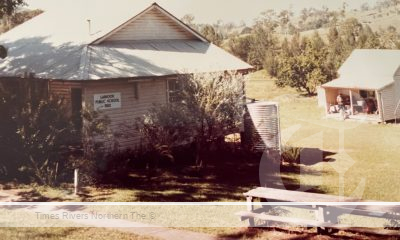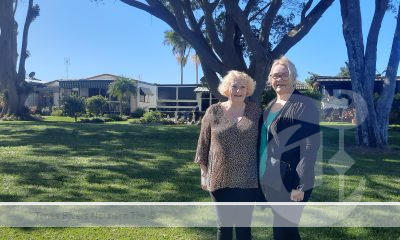Sydney Swans’ AFLW squad take Community Camp to Newcastle
The Sydney Swans’ AFLW squad is heading to Newcastle as part of the first-ever league wide AFLW Community Camp program on 6-7 July.
With fewer than two months to go until its third NAB AFLW campaign, the Swans’ players will use the visit to inspire new fans and garner more support in NSW’s second most populated city. The Swans host Collingwood in a blockbuster Friday night clash at North Sydney Oval on Friday, 30 August to kick off the AFLW season.
Women and girls will be front and centre at the Swans’ Community Camp with two sessions specifically relating to girls keen to play footy. An All Girls Super Clinic will be followed by an U9 girls gala day, providing fantastic opportunities for participants to meet elite players and have a kick.
In an action-packed weekend, there will also be sessions for selected women and girls involved in youth and senior football including a leadership forum, an umpiring information session and a coaching masterclass featuring players and coaches from the Sydney Swans.
Participation and Programs Project Manager, AFL NSW/ACT, Simon Smyth, said of the Sydney Swans’ visit to Newcastle: “It’s a great time to be a girl playing footy and we’re grateful the Sydney Swans have chosen Newcastle for the team’s first official AFLW Community Camp.
“This area has a strong connection to footy with AFL Hunter Central Coast one of the country’s oldest-running sports leagues. We’ve seen many Australian rules football legends come out of this area and we hope the Community Camp will inspire some stars of the future.
“I encourage all girls to attend Saturday’s clinic and any under-nine girl with an interest in team sport to try the gala day on Sunday. The Community Camp is also a great time for youth girls and senior women coaches, umpires and players to mingle with elite players and receive a few tips.”
Lord Mayor, Nuatali Nelmes, said City of Newcastle’s ongoing investment in No.1 Sportsground continues to pay dividends for local athletes. “We’re delighted to welcome the Sydney Swans AFLW squad to Newcastle for this highly anticipated Community Camp,” Cr Nelmes said.
“Through City of Newcastle’s 10-year Strategic Sports Plan we’re providing facilities that support universal access and allow for greater female participation in sport. Our $8 million investment into improving and expanding the playing surface and installing new floodlights at No.1 Sportsground was just the beginning of upgrades that are designed to deliver a facility capable of hosting elite-level AFL and AFLW matches.”
All Girls Super Clinic
A great way to mingle with the Sydney Swans AFLW players and play footy-based games. No previous Australian rules football experience needed.
- Date: Saturday, 6 July
- Time: 1:30-2:30pm
- Location: No. 1 Sportsground, Newcastle
- Ages: 5-12
- Register: Here
U9 Girls Gala Day
An opportunity for girls under nine years to try Australian rules football in a fun environment with modified rules, including no tackle. Sydney Swans AFLW players will offer support and provide some basic coaching.
- Date: Sunday, 7 July
- Time: 11:30am-1:00pm
- Location: Pasterfield Sports Complex, Cameron Park
- Ages: 5-8 years
- Register: Here
Swans AFLW Coach Masterclass
Be a part of the Swans AFLW Coach Masterclass, exclusively available for women and girls looking to gain invaluable insights from the experts.
- Date: Saturday, 6 July
- Time: 2:30PM
- Location: No. 1 Sportsground, Newcastle
- Register: Coaches will be invited to register via email
U9 Girls competition 2025
For the first time, AFL Hunter Central Coast will offer an U9 Girls competition in season 2025. Girls currently play mixed teams in U9s, with standalone girls sides competing from U11.
NAB AFL Auskick Burst in Newcastle
Participants inspired by the Sydney Swans will have an opportunity to join the fun weekly, with NAB AFL Auskick re-opening in Newcastle from 21 July, offering participants half a season of the Auskick experience and the beloved Auskick pack.
We call it Auskick Burst, with participants bursting on the footy scene and having a great time. Auskick Burst will be offered at a greatly reduced price, which will be revealed before the Sydney Swans’ AFLW Community Camp.
For more sports news, click here.





 Tweed Shire News2 years ago
Tweed Shire News2 years ago
 Motoring News1 year ago
Motoring News1 year ago
 COVID-19 Northern Rivers News3 years ago
COVID-19 Northern Rivers News3 years ago
 COVID-19 Northern Rivers News3 years ago
COVID-19 Northern Rivers News3 years ago
 Northern Rivers Local News3 years ago
Northern Rivers Local News3 years ago
 Health News3 years ago
Health News3 years ago
 COVID-19 Northern Rivers News3 years ago
COVID-19 Northern Rivers News3 years ago
 NSW Breaking News3 years ago
NSW Breaking News3 years ago




























